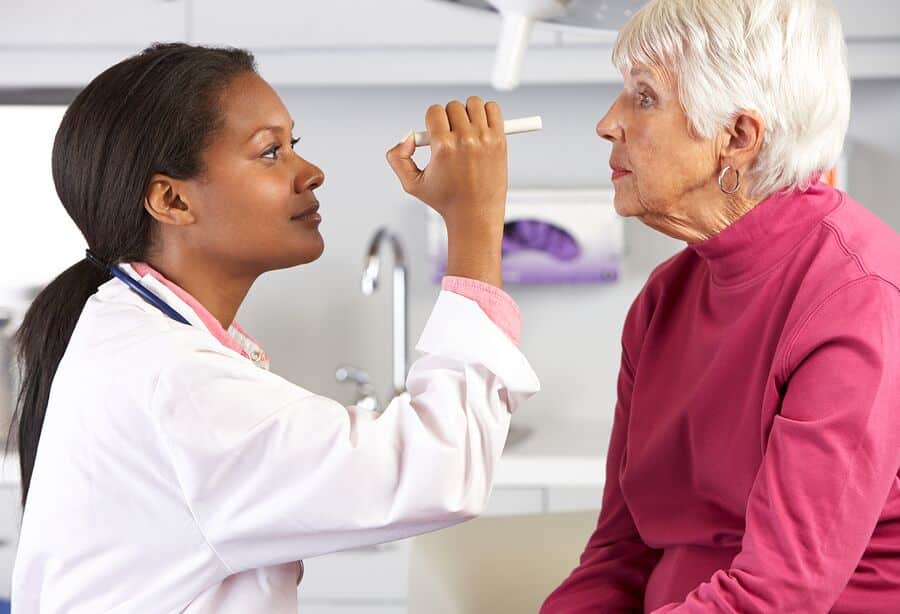When seniors reach a point in their lives where they struggle with physical challenges from illness or injury, they look to family caregivers for help in getting basic tasks done while staying in their own home.

Family caregivers and seniors often hire elder care providers for extra help during the day or night. Part of taking care of an elderly adult means getting them to medical appointments, exams, and checkups, including eye exams.
Too many family caregivers don’t think those eye exams are very important, or else the elderly adult already has glasses so there’s no need to have regular checkups with an eye doctor. The truth is that seniors are more at risk for eye diseases, many of which cannot be detected in the early stages without a full eye exam.
Common Eye Diseases and Aging Adults
The risk of certain eye diseases increases with age, meaning that aging adults are more likely to develop them without even knowing it. When eye diseases are left untreated, they can cause lots of health problems, vision loss and may even lead to blindness. An eye exam is the aging adult’s best chance to get the most effective treatments from the eye doctor. Many of the symptoms of eye disease are not noticeable until they have progressed quite a bit, making it late to start treatments.
Common eye conditions and diseases for seniors include dry eye, cataracts, glaucoma, macular degeneration, and diabetic retinopathy. Symptoms, when they are detectable, often include itchy eyes, blurred vision, cloudy vision, headaches and sensitivity to light. Seniors with a history of eye issues or a family history of eye disease are at high risk, as are smokers. However, any elderly adult can develop eye disease, so family caregivers and elder care providers must be on the lookout for symptoms and arrange for regular eye exams.
Eye Health Tips for Aging Adults
There are lots of things that family caregivers, elder care providers, and seniors can do to boost eye health overall right in their own home. In between visits to the eye doctor, seniors can focus on a healthy diet, exercise, and restful sleep. They should wear UV-resistant sunglasses when outdoors on moderate to sunny days to reduce eye damage. A senior’s glasses should always be at the current prescription to prevent eye strain, blurred vision, and headaches.
Eye exams are very important for aging adults, but it’s up to family caregivers to make the arrangements. Together, the aging adult’s support team can keep the focus on eye health and ensure the aging adult has many years of good vision ahead of them.
If you or an aging loved-one are considering Elderly Care in Hillsborough, CA, call the caring staff at Aviva In-Home Care. Call today: (415) 795-2203
- Do You Need Help with Personal Care for Your Senior? - September 16, 2019
- Causes and Risk Factors for Shingles in the Elderly - September 12, 2019
- Five Reasons Your Senior Might Need a Daily Routine - September 5, 2019




